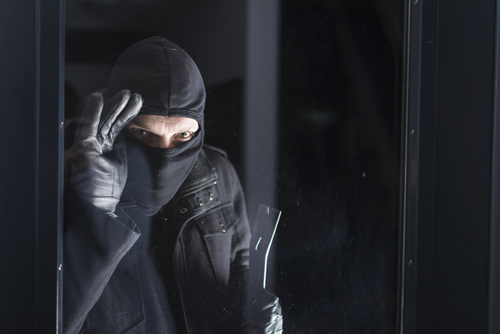How to
Five student security tips

When your child flees the nest for university, you’ll have a whole new set of worries. No longer under your watchful eye, you’ll have to come to terms with the fact that you won’t be able to protect them as easily.
With more students than ever before leaving their homes for university halls of residence and shared digs this year – almost half a million, according to UCAS – it’s worth thinking about how you can best equip your loved ones to keep their belongings safe and secure.
Here are five student security tips to ensure your children’s time at university gets off to the safest possible start.
- Choosing the right place to live
According to figures from the National Union of Students, one in five students will fall victim to crime at university, with the average cost of a student break-in reaching £900 for replacing belongings and repairing associated damage.
It’s worth asking about security provisions ahead of the start of term, or even arranging to visit if possible. If you’re not convinced the security features in your child’s accommodation are sufficient, you can reasonably request they are upgraded by the landlord or accommodations office.
The first day of term should be spent unpacking and getting to know roommates – not in the local hardware shop buying extra locks.
- Keep track of all belongings
Making an inventory of items as you’re helping your children pack up is a good way of ensuring they’ve got everything they need. But it’s also a helpful list to keep on hand in case there is a burglary as it can help police track items down.
Calculate the replacement value of the contents too, such as books, laptops, sports equipment or cameras, and take pictures of belongings as they get packed away. This is helpful in the event of needing to report a burglary to the police and make an insurance claim
- Go back to basics and get security-savvy
Teaching your children the difference between detergent and washing up liquid, and how to prepare a nutritious meal, are probably top of your priority list. But it’s also important they understand the importance of staying safe.
Help your kids to get in the habit of locking the front and back doors, and all windows, whenever they leave the house – even if they’re only popping out for five minutes. If they’re in shared digs, be sure they know to lock their bedrooms to minimise risk from other tenants. Having lots of new friends round for Freshers’ Week parties might seem like the friendly thing to do, too, but advise your children to be wary of inviting strangers into their personal space until they know them well enough to trust them.
Keeping valuables hidden away from windows, out of sight and appropriately secured is also crucial. Student houses are notorious for being crammed with expensive electronics, such as laptops, smart phones, jewellery and musical instruments, and can be seen as an easy target.
- Equip your children with security essentials.
A kettle and a duvet might be obvious things to pack for Freshers’ Week, but an ultraviolet pen could be handy too. Albeit it might not seem obvious to parents, unless they are serious James Bond enthusiasts, but marking valuables with your child’s postcode, name and student registration number will help the police to trace items should a theft occur.
When the clocks go back, darker nights may present more opportunities for thieves to strike. A timer for lamps can be worth its weight in gold in creating the impression someone is at home during winter months.
A home safe may also be a worthwhile investment for shared houses, ideal for storing smaller valuables and important documents. But be sure to check with landlords before making any alterations.
- Check exactly what your insurance covers and, more importantly, what it doesn’t.
Some home insurance policies will cover a number of items out of the home as standard, so your children’s property may be protected by your existing cover. Other insurers offer this as an add-on for an extra premium, while some may only cover items up to a certain value.
It’s worth your child knowing exactly what they are covered for, too, and to keep you updated with any major purchases such as expensive laptops which may require an adjustment to your policy.
It’s essential to speak to your policy provider to find out exactly what your insurance entails and whether your child needs additional protection – before the need to make a claim arises. To find out more about home insurance, please click here.
Mark Hallam is head of products at Swinton Insurance
[article_related_posts]